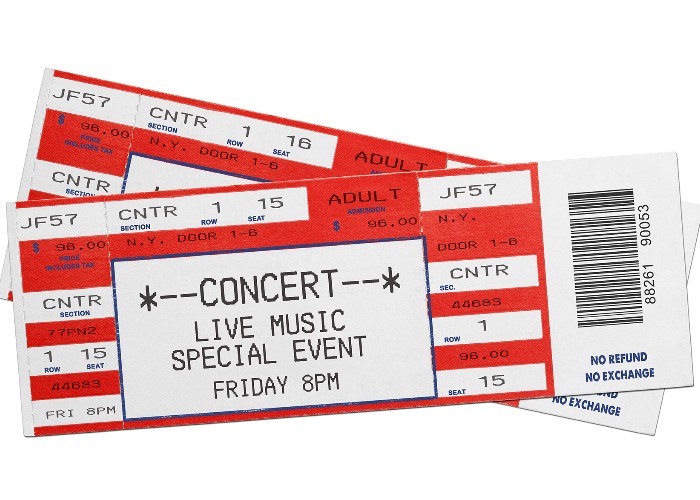Ticket fraud: how to avoid falling for fake ticket scams

Looking to buy tickets for a popular music concert or big sporting event now that COVID-19 restrictions have been loosened? We explain how to stay safe and avoid falling victim to ticket scammers.
Sections
The fake ticket problem
Whenever a big event is on the horizon, whether it’s a popular gig or a sporting event, you can guarantee scammers will be rubbing their hands with glee at the potential to make a few quid.
Over the last year, this is likely to have been less of an issue as countless popular events have been cancelled due to the coronavirus pandemic.
But now that people can go to the cinema, theatre or other events (with lower capacity), scammers once again have an opportunity to trick people out of their money.
Thousands of people were victims of ticket fraud between 1 April 2018 and 30 April 2019, with total losses hitting around £1.6 million according to Action Fraud.
Victims lost on average a staggering £365 over this period, but the extent of fake ticket scams could be worse than expected as this is based on reported figures only.
New warning from UK Finance urges holidaymakers and festivalgoers to be vigilant as lockdown restrictions ease:https://t.co/n9gCdSYKYu pic.twitter.com/v0PHCOOqJO
— Action Fraud (@actionfrauduk) April 30, 2021
How ticket scams work
Scammers will set up fake websites offering you the chance to buy tickets to a popular event, generally one that is already sold out or where tickets haven’t officially yet gone on sale.
You hand over the cash for the tickets, but they don’t turn up. Or it may be that you are sent tickets, which are actually fake, so you only realise you have been duped when you try to get in.
So how do you protect yourself?

Offering the impossible
If the site is promising tickets to a gig or sporting event which you know is already sold out, then you know it’s a scam.
The fraudsters prey on your desperation, relying on you convincing yourself that everything is legit when it clearly isn’t.
Scammers also tend to request payment by bank transfer, which should be a red flag that something is not right – you can alternatively use PayPal.
Don’t buy from unauthorised sources
Check with the event organiser for official ticket distribution lists, so you know who you can trust.
If the vendor is a member of the Society of Ticket Agents and Retailers (STAR), you’re buying from a firm that has signed up to strict governing standards.
Customers can get help from STAR for outstanding complaints.
Make sure you check where the ticket retailer’s office is and whether they have a proper landline and address in this country, rather than simply a PO box.
Don’t go with unauthorised sources or buy from strangers you meet on social networks.
You should access the website you’re buying from by typing it into your browser – don’t click on any links in unexpected emails or social media posts.
Some fraudsters create fake ticket sales sites and use a very similar name or website address to a legitimate organisation, so if there are any discrepancies, it could be a scam.
Also, be wary of any celebrity endorsements for any ticket sites as fraudsters can impersonate people or trusted organisations.

Check the ticket details
Don’t purchase tickets if they don’t include the block, row and seat details. Without those, you won’t know if the tickets exist or not.
Look for the padlock
Only make a purchase from a site that is encrypted for payment. That means you need to look out for the closed padlock in the website address bar.
Make sure the URL also begins with ‘https’ – the ‘s’ stands for secure.
Pay by credit card
If you are making a purchase of over £100 (and up to £30,000), always pay by credit card as you get extra rights.
It means the credit card provider is jointly liable for delivering on the purchase, so if it turns out to be a scam, you should get your money back.
You should never transfer money directly into an individual’s bank account, warns Action Fraud, as the money may not be recoverable.
If you’re a victim of ticket fraud, you can report it to Action Fraud or call 0300 123 2040.
Keep safe! More scam alerts from loveMONEY:
Comments
Be the first to comment
Do you want to comment on this article? You need to be signed in for this feature